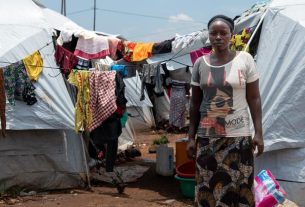If you need medical attention abroad
If you need emergency medical attention, call the emergency services. You can find phone numbers for emergency services in the health section of each country’s travel advice.
Make sure you have enough money or a credit card with you. You will often have to pay upfront for medical care abroad, even if you are fully insured.
Consider whether you need help with translation, particularly if you are being asked to make important and long-term decisions. The Foreign, Commonwealth & Development Office (FCDO) provides lists of local English-speaking translators and interpreters.
If you have insurance
You, your family or someone travelling with you should:
- contact your insurance company as soon as possible – it should have a 24/7 emergency number
- check if your insurance covers you for the help you need, including medical translation or interpreting services
- keep any receipts or doctors’ notes – your insurance company will need them
If you’re not sure if a family member or friend has insurance, try to check with their bank, tour operator or travel agent they made their booking with. Citizens Advice provide some guidance on making a claim.
If you’re not covered by insurance
If you’re not covered by insurance, you’ll usually need to pay for your medical costs yourself. It is your responsibility to make sure you can access enough money to pay for all your costs and to avoid getting into financial difficulties abroad.
Health insurance cards
Apply for a free UK Global Health Insurance Card (GHIC) before leaving the UK. You should also check where it can be used or if there are any other reciprocal arrangements. If you already have a European Health Insurance Card (EHIC), it will still be valid as long as it remains in date. Both cards can help you get essential state healthcare on the same basis as a resident in the country you’re visiting.
If you don’t have a GHIC or EHIC you can apply for a provisional replacement card, which could cover emergency treatment in public hospitals.
Your EHIC or GHIC does not cover going abroad for elective surgery or any planned treatment.
Mental health emergencies and hospitalisation abroad
Facilities, resources and understanding of mental health issues vary from country to country. Local laws, policies and attitudes towards mental health in the country you’re in will affect the type of psychiatric care you may receive. More advice for British people with mental health needs (and their families and carers) while travelling or living abroad, and links to organisations that can provide further help can be found in our mental health and wellbeing abroad guidance.
The rules on mental health hospitalisation or detention in another country may be different to those in the UK. The local authorities may make you leave the country. This could happen if you have been detained or hospitalised under local mental health laws
How the British embassy or consulate can help
If you are in hospital and need help from the British embassy or consulate, call us or ask a family member or friend to do this for you. In certain circumstances some local authorities will tell us about you, and we will contact you as soon as possible. Our staff may be able to visit you, to provide in person assistance depending on location and timing and whether you are able to speak by phone. We will assess your vulnerability based on factors such as:
The British embassy or consulate can offer some support if you have a medical emergency or are hospitalised abroad. Where we have your consent, we can:
- contact your family or friends in the UK to tell them that you are in hospital, if you cannot do this yourself
- provide contact details, or refer you directly, to any local organisations that may be able to support you
- help medical staff abroad to contact UK medical staff or your insurance company
- help you communicate with hospital staff (note this is not a formal translation service, but we can provide details of English-speaking interpreters)
- talk to your travel representative or travel insurance company
- provide information about local medical facilities
- raise concerns you have about your treatment or welfare with the local authorities
The British embassy or consulate cannot:
- buy or pay for your medication, medical bills or other expenses
- pay for you to return to the UK
- give you medical advice
- get you better treatment in hospital than is given to local people
- provide formal translation or interpretation of medical language documents or any other supporting documents
- get you discharged from hospital
- intervene in any local legal process resulting from a mental health emergency
- force anyone to return to the UK against their will
- stop you being deported if the local authorities decide you must leave the country
Going abroad for medical treatment and planned elective surgery
If you travel abroad for medical treatment or planned surgery (sometimes called medical tourism), you should be aware of the potential risks. The standard of medical facilities, qualifications and treatments abroad can vary widely and may differ from UK standards. There have been complications and deaths abroad from medical procedures.
The FCDO cannot usually help if you have travelled abroad for medical treatment, for example if you have issues with the care received or costs involved. Planned medical treatment is considered a commercial arrangement. If someone dies because of their treatment, see our guidance on what to do after a British national dies abroad.
You should:
- be cautious of websites selling cosmetic surgery as part of a holiday
- do your own research – private companies have a financial interest in arranging your medical treatment abroad
- read the NHS going abroad for medical treatment guidance, treatment abroad checklist and, if relevant, cosmetic surgery abroad
- discuss plans with your UK doctor or GP before committing to any treatment abroad
- check how you will get home if there is an emergency, and how much it will cost
- check when you can fly home – air travel after major surgery increases your risk of a blood clot, which can be life-threatening
- be aware that healthcare after your treatment may be limited in the country you are travelling to
- check whether your insurance covers you, and be aware that it may not be valid for some costs (for example if there are complications after the surgery). Be aware that standard travel insurance does not normally cover you if you travelled abroad for elective surgery
Read more advice on travelling for treatment on TravelHealthPro.
Getting prescriptions
If you need prescription medicine while you’re abroad, speak to a local pharmacist. Many countries accept UK prescriptions. Check the country’s travel advice for generic information about travelling with prescription medicine.
If you’re in the EU, you can usually use your EHIC or GHIC for prescriptions from state-approved doctors. This is the same for residents and visitors.
Returning to the UK
Medical repatriation or evacuation
If you are ill abroad, you may need to return home:
- while still receiving care (medical repatriation)
- because specialist care isn’t available locally (medical evacuation or medevac)
Your insurance company should arrange your medical repatriation or evacuation. If your insurance does not cover this, you’ll have to arrange and pay for it yourself. You can check the list of medical repatriation companies to get the support you need.
The British embassy or consulate cannot arrange medical repatriation or pay for it.
If you are returning to the UK on a scheduled flight, you may need to provide the airline with advance confirmation from your treating doctors that you are fit to fly.
If you’ve never lived in the UK or have been abroad some time
If you need to travel to the UK but have never lived here or have been abroad some time, you may not automatically be entitled to state benefits. This includes free NHS hospital treatment.
You will need to provide proof that you meet certain residence requirements and are eligible for free healthcare. For more information on healthcare and related issues, read returning to the UK guidance.
If you need help to return to the UK, the FCDO may be able to contact family or friends, social services, NHS teams, charities and other organisations.
In the UK contact the Foreign, Commonwealth & Development Office (FCDO) for help and advice 24/7 on +44 (0) 20 7008 5000.
In another country, contact your nearest British embassy or consulate.
Feedback
We welcome your views on the support we provide, to help us to identify what we do well and what we could do better. Contact us using our feedback contact form.
Alternatively write to us:
Consular Feedback Team
Consular Directorate
Foreign, Commonwealth & Development Office
King Charles Street
London SW1A 2AH
Or telephone +44 (0)20 7008 5000
Disclaimer
Read the disclaimer relating to this guidance.



